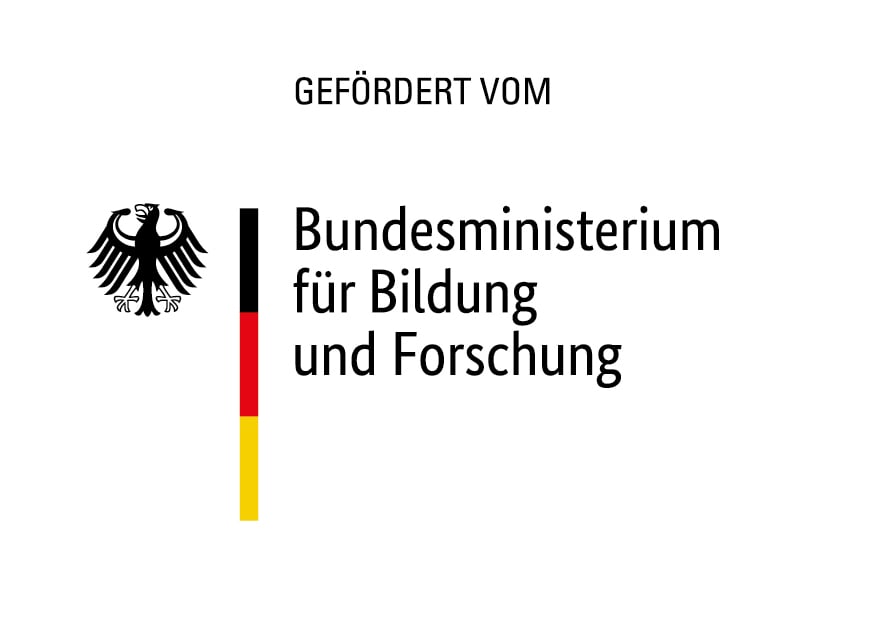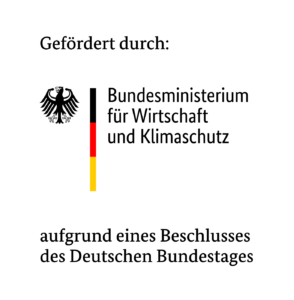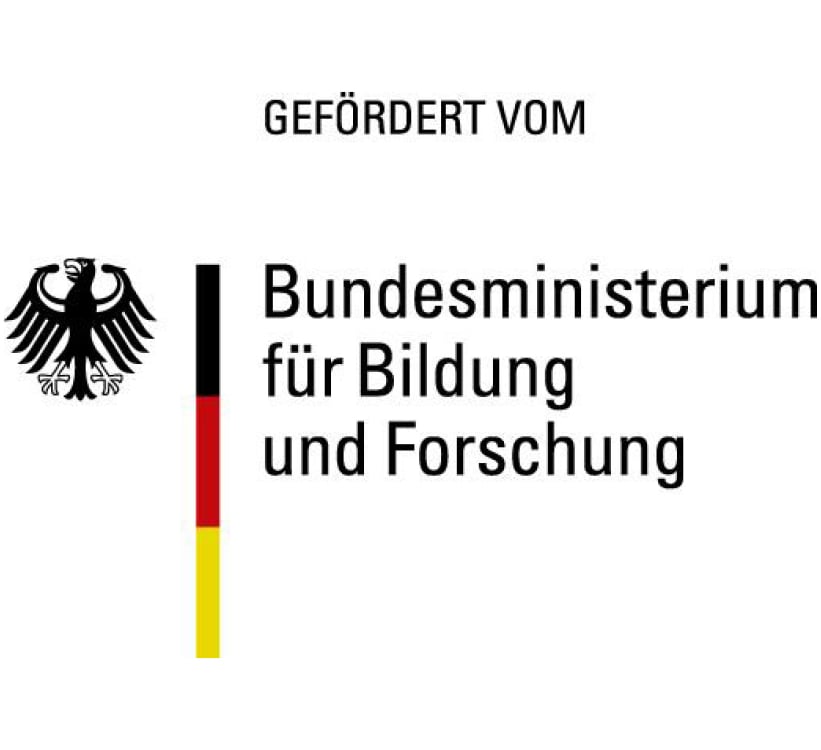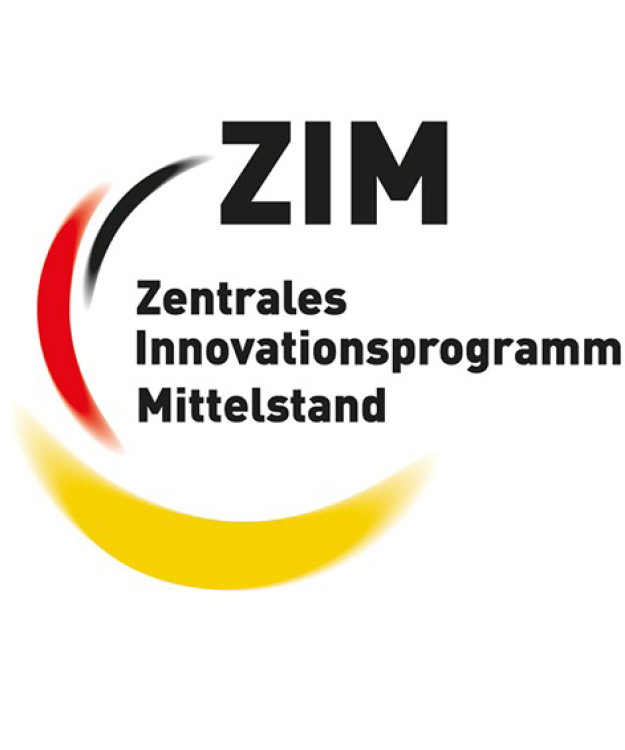We are one of the few IT companies that conduct extensive research themselves. The results of our research are validated and further developed in practice.
Featured Research Projects
-
Flex-KI Projekt
Duration: 01/2022 – 12/2024
![]()
The goal of the FlexKI project is to develop an open reference approach for the deployment of AI and DSP applications, aiming to overcome the hardware dependency of current AI application development processes.
Two different development paths are considered:
- Flexible deployment of networked AI applications on high-performance, heterogeneous off-the-shelf hardware platforms.
- Hardware/software co-design approach for deployment on new customized, energy-efficient AI hardware platforms.
In addition to avoiding vendor lock-in, both paths enable automatic and rapid migration of AI applications to other hardware platforms if certain hardware components are unavailable due to protectionism, blacklisting, or supply shortages (chip crisis).
The project overall strengthens all stages of the automotive value chain in Germany and paves the way for future standardization in the field of AI deployment.
The work carried out by itemis AG includes the development of concepts and tools for flexible (re)deployment of machine learning algorithms, as well as the advancement of the systemic consideration of cybersecurity for such systems.
-
COOPERANTS
Duration: 01/2021 – 12/2024
![]()
![]()
COOPERANTS (Collaborative Processes and Services for Aeronautics and Space) is a project within the Gaia-X framework project, and it's about accelerating the digitalization processes in the aerospace industry with the help of Gaia-X and more efficient working methods and processes via the whole life cycle of spacecraft or aircraft. To this end, various smart services are to be integrated into a digital work environment (data spaces): collaborative project management and system modelling, intelligent assistants, optimizers, and diagnoses based on AI, telepresence using virtual/augmented reality, simulations, knowledge management and cyber-physical interfaces. These services are designed to help companies in the aerospace industry digitize and automate their processes to work more efficiently and cost-effectively.
-
KI embedded
Duration: 09/2021 – 08/2024
![]()
The aim of the “KI embedded“ project is to develop new methods for the development, modeling and regulation of drive control systems based on AI technology. As part of this project, the "OFFIS - Institute for Computer Science" is working on the development of a compiler for new types of data flow processor architectures. The compiler should translate control algorithms from a domain-specific language into a configuration for this architecture, which corresponds to a program in conventional processors. Unlike other processors, the data flow architecture does not work with sequential instructions, but can process data streams in parallel, which enables the exploration of completely new data flow-based optimization methods. The project focuses on compiler building and high-level synthesis techniques. The fields of application in the research project are conventional signal processing algorithms and artificial intelligence.
-
ImPaKT
Duration: 01/2021 – 12/2023
![]()
ICT-Enabled Model-Based Impact Analysis in Product Development
The goal of ImPaKT is to be able to efficiently perform change analyses for a mechatronically a sophisticated mechatronic system. This is done in an interdisciplinary, holistic approach. The model goes beyond a classic system model, for example in the sense of SysML: Other partial models such as CAD, BOMs, inventory, etc. are considered. The results are intended to establish new standards for handling change requests and changes in order to develop faster and more cost-effectively products.
itemis AG, as an IT partner, is creating the mechanisms for the integration of data from a heterogeneous system landscape and developing AI-based algorithms for impact analysis.
The project is funded by the German Federal Ministry of Education and Research.
-
SecForCARs
Duration: 04/2018 – 12/2021
![]()
Security for Connected, Autonomous Vehicles
The aim of the project is to research methods, approaches and tools for securing critical vehicle communication. The focus is on the control circuits distributed in the vehicle, which lead from the sensor through the data being processed in the control units to the actuators such as steering or brakes.
The functional vehicle architecture will be extended by new, innovative security mechanisms that make attacks on the control circuits significantly more difficult. In addition, the project team is developing tool-supported design, analysis and test procedures. These are used to identify and evaluate weak points that enable attackers to spy out or manipulate control circuits. Protection against attacks and functional security are considered together, taking possible interactions into account.
The project is funded by the German Federal Ministry of Education and Research (BMBF).
-
SAFE4I
Duration: 10/2017 – 12/2021
![]()
Secure Automatic Software Design for Industrial Plants
The "SAFE4I" research project aims to simplify and thus accelerate the development of functionally safe software through tool-supported automation. The thirteen project partners are developing a common, model-based methodology as well as standardized formats and tools. This will allow proven safety measures to be incorporated into the functional code of technical systems (especially embedded systems). The application focus is Industry 4.0.
For itemis, this project offers the opportunity to build up further know-how in the area of functional safety and at the same time to advance its own MPS-based tool platform. For example, itemis is developing a demonstrator and the necessary tool stack in the project, in order to apply safety measures in an exemplary automated manner both on the level of the component model as well as in C code.
In addition, itemis is leading one of the six project work packages, which deals with the tool infrastructure and automation. Primarily, the platforms Eclipse and JetBrains MPS are used.
The project is funded by the German Federal Ministry of Education and Research (BMBF).
-
HANSEBLOC
Duration: 04/2018 – 09/2020
![]()
Hanseatic Blockchain Innovations for Logistics and Supply Chain Management
At HANSEBLOC, potential additional benefits of blockchain for the logistics sector are identified and implemented as a prototype. An exemplary use case is the counterfeit-proof shipping of transport documents to the parties involved along the logistics chain, with the blockchain as a trusted entity.
itemis AG ensures the end-user-friendly definition of Smart Contracts using a domain-specific language (DSL). This language considers verification and simulation aspects and enables the generation of executable code for the blockchain. This will also be made possible via a web collaboration platform.
Logistics companies, IT service providers and universities participate in the joint project. It is coordinated by Logistik-Initiative Hamburg e.V. (LIHH) and funded by the German Federal Ministry of Education and Research (BMBF).
-
CrESt
Duration: 02/2017 – 05/2020
![]()
Collaborative Embedded Systems
The project aims to develop methods for the model-based development of collaborative embedded systems.
The number and complexity of functions executed by embedded systems and cyber-physical systems is continuously increasing. A large part of the complexity results from the interconnection of the systems. This has a massive impact on the scope to be considered. The focus is no longer only on individual systems, but on their cooperative interaction in networks of systems. The ability to form such networks dynamically will be the basis for many smart technologies of the future.
Development methods have been elaborated in the joint project SPES and SPES_XT. These methods will be extended for the model-based development of cooperative systems and supplemented by new ones that specifically address the challenges of developing system clusters.
In this context, itemis considers in particular which tool support is necessary for the modeling and analysis and how modeling tools can be integrated into tool chains in a heterogeneous environment.
The project is funded by the German Federal Ministry of Education and Research (BMBF).
-
CBMD
Duration: 07/2017 – 12/2019
![]()
![]()
Contract-Based Modeling and Design
The research project pursues the goal of securing the design and development of complex technical systems through the formal modeling of so-called “contracts”. The core idea of the CBMD project is to model systems as a hierarchy of components. This allows to analyze the inner workings of each component and its interaction with the environment separately during automatic formal analysis.
For the exchange of models between tools from different vendors, the project partners are developing a common Ecore metamodel to represent hierarchical component structures and contracts. This allows an exchange of models and results between the tools involved.
An example for the formal modeling of Contracts is the interface description language Franca IDL. It offers the possibility to define sequences in the form of protocol state machines.
The research project “CBMD” is carried out within the framework of the ZIM funding program at the BMWi. It is funded by the German Federal Ministry of Economics and Energy.
-
VisTraQ
Duration: 06/2016 – 05/2019
![]()
Qualified Development Decisions for the Creation of Mechatronic Systems
In the VisTraQ project, together with the department of software technology for safety-critical systems at the TU Ilmenau, itemis was developing a tool-supported methodology for the efficient analysis of development work products and their connections during the creation of mechatronic systems. The developed prototype provides an intuitive, web-based possibility for querying and analyzing development data across an entire project and thereby make a significant contribution to more objective and better development decisions.
One of the project goals is to determine the information needs of people involved in a development project. To this end, interviews took place with people who played different roles in development projects. The results were used to evaluate existing query languages and to develop a separate textual and graphical query language for traceability data.
These query languages satisfy the relevant information needs of people involved. They are easy to learn, but also powerful enough to formulate all important queries. For example, in order to be created and executed by the management level, the associated queries are readable and understandable.
A further goal is to incorporate the knowledge gained into the further development of the existing itemis product itemis ANALYZE in order to expand it with advanced analysis and reporting functionalities.
-
SAKOP
Duration: 04/2017 – 03/2019
![]()
Self-Adapting Coupling Component for Connecting Machines and IT Systems
The future vision of Industry 4.0 requires highly connected and versatile production systems. In order to ensure a continuous flow of information within the entire automation pyramid, machines must be able to be integrated with overlying IT systems in a manner that is flexible, efficient and independent of the manufacturer. Existing integration solutions currently require enormous manual effort.
The goal of this project was the development of an intelligent, self-configuring and manufacturer-independent coupling component to connect different machines with information and control systems in a completely new way.
The basic idea of the coupling component is the automated reuse of integration knowledge. In a learning phase, the coupling component analyzed the data flow and found stored data patterns in order to derive possible information models and mapping rules between source and target model. These rules can be used for concrete data transformations. By storing the mapping rules in a repository, they are available again for subsequent connection projects or when machine configurations are changed and can be automatically adopted or adjusted. With an increasing number of machine connections, the coupling knowledge grows.
With the help of the solution developed in the project, both machine manufacturers and application system manufacturers can considerably improve the integratability and adaptability of machines. The project results represent an advanced technological solution for both industrial partners for the processing of recurring machine connections/integration issues.
The project was funded by the German Federal Ministry of Education and Research (BMBF).
-
IETS3
Duration: 01/2016 – 02/2018
![]()
A particularly critical step in system and software development is the gathering of requirements. Inaccurate requirements are one of the most expensive sources of errors in development processes. Especially in the area of safety-critical systems, accident investigations have shown that incomplete requirements are a major cause.
IETS3 deals with the (partial) formalization of requirements in order to be able to detect and eliminate errors and inconsistencies at an early stage by means of automatic analyses, for example by model checkers or SMT solvers.
As evaluation partners, we were supported by well-known major corporations from the automotive industry, medical technology, aviation and consumer electronics.
A central result of the IETS3 project is the ISE tool platform (Integrated Specification Environment). It is based on the open source tool JetBrains MPS and is successfully used and continuously extended in subsequent research projects as well as in commercial customer projects.
The project was funded by the German Federal Ministry of Education and Research (BMBF).
-
AMALTHEA
Duration: 07/2011 – 04/2014
Model-Based Open Source Development Environment for Automotive Multi-Core Systems
Under the project name AMALTHEA, a platform for new development environments has been created that was designed for the development of multi-core systems, that supports the product line approach and that delivers AUTOSAR-compliant results. To enable automatic code generation and software reuse, the tools are based on the paradigm of model-based development and support all relevant development steps.
The main benefit of the AMALTHEA project was the reduction of development costs, since the project result was a complete and consistent development platform that was available for the first time. The project results were made public under the Eclipse Public License. This means that companies that were previously not represented in this sector can also participate in the development of new vehicle functions.
-
DSL4X
Duration: 06/2012 – 11/2013
Domain-Specific Languages for X
The use of domain-specific languages in software development is an important element in the race with the increasingly complex IT landscape. Just a few years ago, it was usually sufficient for a company's software to run on one operating system. Today, applications of this kind must be available in the cloud and accessible by various platforms. Unfortunately, software developers are often overwhelmed with the task of learning the various platform-specific programming languages, libraries and tools and finally combining them in one project.
Domain-specific languages (DSL), which are developed specifically to describe application-related issues, are a popular way to standardize the different platforms and make them available to application developers with a common interface.
The goal of the research project DSL4X was to support DSLs by advanced editors for platforms outside of Eclipse.
-
AMOR
Duration: 11/2008 – 10/2010
Advanced MOdel Repository
In the AMOR project, itemis, together with the Institute for Applied Computer Science at the University of Leipzig, has developed a general concept to manage development artifacts of model-based software development. The model repository conceived by the technology partners was implemented prototypically as a solution based on Eclipse. The repository, in which models can be stored in a browsable, versionable and reusable manner, was used and tested at the application partner Intershop Communications AG.



